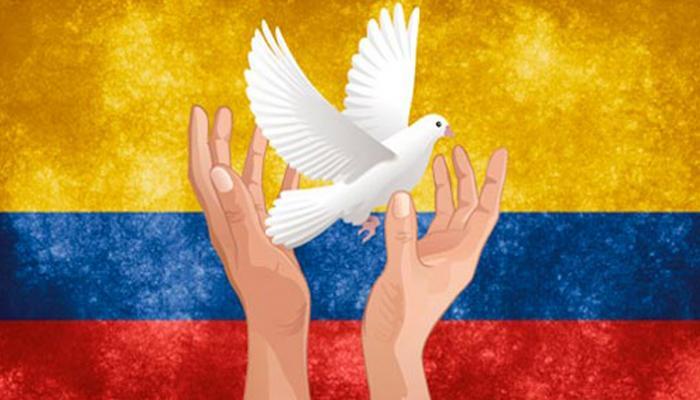Bogotá, June 25 (RHC)-- Social movements and civil society groups across Colombia issued their support following Thursday's cease-fire agreement between FARC rebels and the Colombian government.
Trade unions, human rights organizations and civil society groups expressed optimism regarding the cease-fire agreement in the mediated peace process which began in Cuba in 2012, and is set to culminate in July 2016.
“Within three years, we have been able to arrive at a definitive agreement, which means that it is possible to achieve peace through dialogue, because bullets do not solve anything. Peace is possible without the use of guns,” John Jairo Mena of the Rural Collective of Cavida stated Friday.
Meanwhile, Camilo Villa from the Movement of Victims of Crimes of the State said: “We have waited three years for this day,” adding “there is optimism that the fighting will stop.”
Omar Fernandez from the Coalition Movement of Social Organizations of Colombia issued similar sentiments, stating: “It is a tremendous accomplishment that all Colombian’s should appreciate, it represents an essential step forward toward peace and true democracy,”
Continuing, Fernandez emphasized the importance of expanding alternative media outlets in the country in order to facilitate the peace process, blaming mainstream media outlets for their role in “generating public support” for initiatives contrary to peace efforts.
FARC officials and the Colombian government have not yet agreed on terms for the overall implementation of a peace accord and how a national referendum on the deal will be organized.
Additional pending issues include FARC's “reincorporation” into civilian life, its transformation into a political movement, and the monitoring and implementation mechanisms for all commitments.
The final peace accord, which must be confirmed by a popular vote, is awaiting approval from the country's constitutional court.
Putting the peace deal to a popular referendum is not a constitutional or legal obligation of President Santos' administration because the nation's charter gives him the power to negotiate and sign the agreement without that step. However, the Colombian leader has insisted that he wants the nation's people to have the final say.
According to a poll published in May by polling agency Cifras and Conceptos, 61 percent of those surveyed responded that they would vote in favor of a peace agreement, while 29 percent would vote against it.


